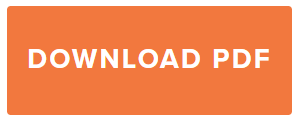Sanctioned kleptocracy: How Putin's kremligarchs have survived the war--and even prospered


Russia’s full-scale invasion of Ukraine in February 2022 challenged much of the common Western understanding of Russia. How can the world better understand Russia? What are the steps forward for Western policy? The Eurasia Center’s new “
Russia Tomorrow” series seeks to reevaluate conceptions of Russia today and better prepare for its future tomorrow.
https://www.atlanticcouncil.org/content-series/russia-tomorrow/sanctioned-kleptocracy-how-putins-kremligarchs-have-survived-the-war-and-even-prospered/

By the time Russia launched its full-scale war against Ukraine in February 2022, the Kremlin’s transnational kleptocracy had achieved substantial global reach. It had penetrated every continent with corrupt practices, boasted abundant finance for its operations, and found every vulnerable strategic point where it could challenge the United States and its allies politically. Crucially, it had also inserted itself in key global financial and natural resources value chains in a way that ensured that it would be extremely difficult for the West to disentangle from it or counter it through sanctions or other measures.
With such a high level of global infiltration, even today’s unprecedented Western sanctions are only partially curbing Russia’s weaponized kleptocracy. Despite setbacks, Kremlin-led networks are still capable of undermining the West and its allies. This report will seek to answer three questions.
 How did we get here?
How did we get here?
Until the end of his first presidential term in 2004, Vladimir Putin was hiding his true intentions for imperial revanchism and deploying weaponized kleptocracy as a foreign policy tool. First, he needed to consolidate power. He also needed to leverage the global economy and rising commodity prices to augment his resources and assets, as well as those of his inner circle. This period of consolidation coincided with an era of
rising living standards (measured by rising personal income, socioeconomic indicators, and other measures) as Russia recovered from the economic crisis of 1998.
Early in Putin’s tenure, leading Western politicians—including UK Prime Minister
Tony Blair, Italian Prime Minister
Silvio Berlusconi, German Chancellor
Gerhard Schröder, and even US President
George W. Bush—assisted Putin, sometimes wholeheartedly and sometimes inadvertently, in his kleptocratic exploitation of globalization. So did large Western corporations such as
British Petroleum (BP), Shell, and Exxon. Many focused on securing their share of economic benefits in trade with Russia, seeing this as a win-win scenario, while
ignoring warning signs, including Putin’s brutal war in Chechnya and his suppression of dissent.
snip





